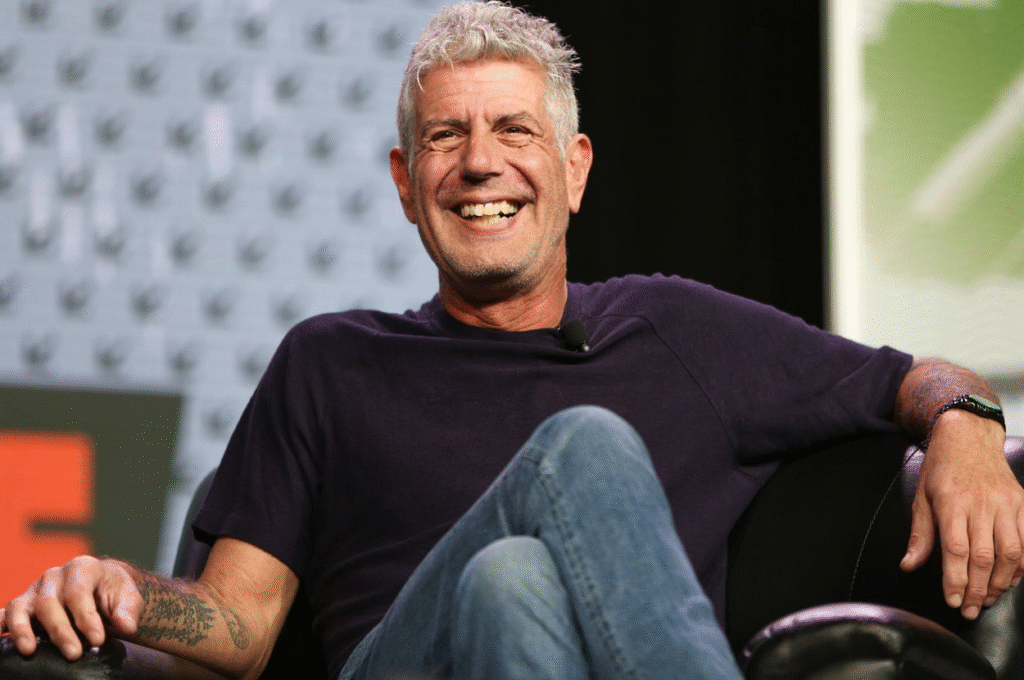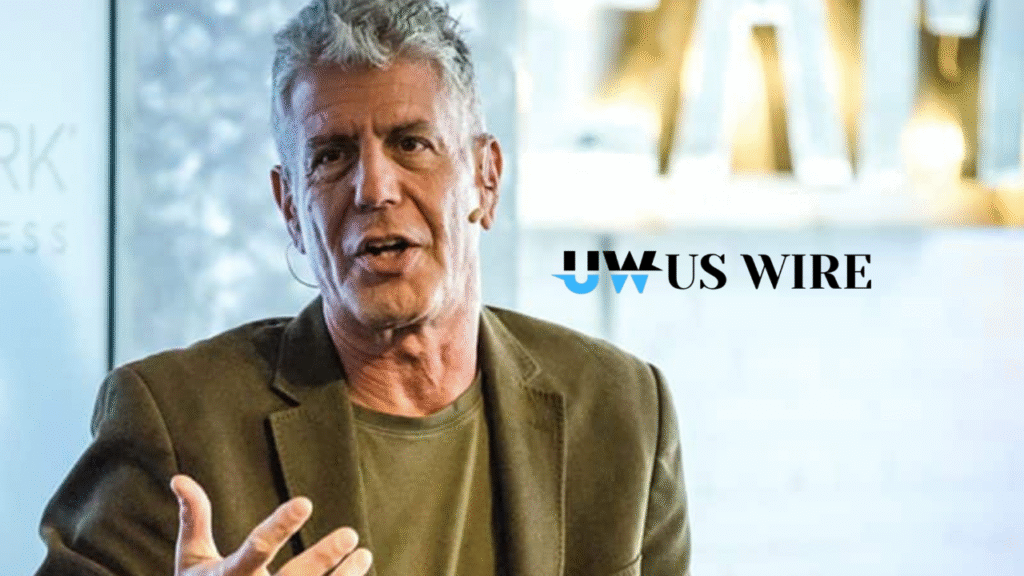When someone as well-known and loved as Anthony Bourdain takes their own life, the world asks questions. Many people searched, “Why did Anthony Bourdain kill himself?” not just out of curiosity, but out of deep sadness and confusion. This article is a gentle, respectful look into his life, what may have led to his decision, and what we can learn from it.
Who Was Anthony Bourdain?
Anthony Bourdain was more than just a chef. He was a storyteller, a traveler, an author, and a TV host who showed the world cultures and foods that many of us had never experienced before. His TV shows, like Parts Unknown and No Reservations, were about more than meals—they were about people, connection, and understanding. He had a unique way of talking about the world that made us feel like we were there with him, tasting the food, meeting the people, and learning their stories.
Born in New York City in 1956, Bourdain started his career as a chef and later wrote the bestselling book Kitchen Confidential, which gave readers a behind-the-scenes look at the restaurant world. That book made him famous almost overnight, and soon after, he began traveling the world with a camera crew, eating everything from fine cuisine to street food in far-off villages. He became known for his honesty, humor, and curiosity, and millions loved him for it.
What Happened in 2018?
In June 2018, while filming an episode of Parts Unknown in France, Anthony Bourdain died by suicide. He was found in his hotel room by his close friend, French chef Eric Ripert. The news shocked fans, friends, and even people who didn’t know much about him. How could someone who seemed so full of life, adventure, and insight feel such deep pain?
At the time of his death, Bourdain was 61 years old. He had a young daughter, a successful career, and millions of fans around the world. But as we’ve learned since then, having those things doesn’t always mean someone is okay on the inside. Mental health struggles can affect anyone, even people who look like they have it all.
Why Do People Think He Did It?
The truth is, no one but Anthony Bourdain knew exactly what was going on inside his heart and mind. There is no single answer to the question, “Why did Anthony Bourdain kill himself?” However, over time, people have shared thoughts and observations that may help us understand the pain he was going through. It’s important to talk about these things carefully and with respect.

He Felt Very Lonely
Even though people surrounded him during his travels, Anthony Bourdain often spoke about feeling lonely. Constantly being on the road can make it hard to build close, lasting friendships. The time difference, the hotel rooms, and the flights—while exciting—can also be isolating. In interviews, Bourdain admitted that loneliness followed him, and it’s possible that this feeling grew over time.
Fame can be strange. You can have thousands of people cheering for you, but still feel completely alone. For someone like Bourdain, who opened up about personal struggles in his past, being alone with one’s thoughts could have been very difficult.
Personal Problems Hurt Too
At the time of his death, Bourdain was going through a difficult romantic relationship. He had also been divorced twice before. While personal life is private, reports suggest he was dealing with emotional pain related to love, family, and trust. These kinds of problems—when added to stress, work pressure, and travel—can feel overwhelming.
People often think that success means happiness, but that’s not always true. You can have the dream job and still feel sadness in your personal life. This may have been part of the storm Bourdain was facing in those final days.
Mental Health Matters
Anthony Bourdain had talked before about struggling with addiction and depression. He had a past filled with hard moments, including drug use in his younger years. Even though he had turned his life around in many ways, mental health challenges don’t just disappear. Sometimes they come back quietly, especially when combined with stress, fatigue, and emotional struggles.
Experts believe that mental health plays a big role in suicide. It’s not just one sad day or one breakup—it’s often a combination of deep, lasting pain. Bourdain’s story reminds us that mental health needs attention, care, and understanding, just like physical health does.
What Did His Friends Say After?
After Anthony Bourdain passed away, many of his friends and co-workers spoke out. They said he had seemed tired, but they didn’t know just how deeply he was hurting. Chef Eric Ripert, who was with him in France, said Bourdain had been a little more withdrawn than usual, but nothing seemed seriously wrong.
Other friends said they wished they had known more or asked more questions. They reminded people to check on loved ones, even those who seem strong. Many shared messages about the importance of mental health and reaching out to those who may be struggling. His death sparked a larger conversation worldwide about suicide, depression, and how we can better support each other.
What Can We Learn from His Story?
Anthony Bourdain’s life and death teach us many lessons. First, we learn that success does not protect someone from sadness. Even people who inspire others can feel lost inside. Second, we see the importance of listening to ourselves and others. If someone seems different, distant, or unusually quiet, it’s okay to ask, “Are you okay?” That one question might make a big difference.
We also learn that taking care of mental health is not a luxury—it’s a necessity. Just like we brush our teeth or see a doctor when we’re sick, we must care for our minds and emotions. It’s okay to talk to a therapist, take breaks, or ask for help.
Finally, we learn that we are never really alone in our pain. Many people share similar struggles, and support is out there. Bourdain’s life was filled with joy, but also with hidden pain, and his story reminds us to be gentle with ourselves and with others.
Why Talking About Mental Health Is So Important
For many years, people were afraid to talk about mental health. They thought it was a weakness or something to be ashamed of. But stories like Anthony Bourdain’s show us why that thinking needs to change. Talking about mental health can save lives, reduce shame, and help people heal.

It’s Okay to Ask for Help
Sometimes we feel like we have to be strong all the time. But strength also means knowing when you need support. Asking for help from a therapist, friend, teacher, or doctor is not weakness—it’s bravery. People who talk about their feelings are taking the first step toward healing.
You Are Never Alone
Even when you feel like no one understands, someone out there does. Others have walked through the same dark places and found the light again. There are hotlines, support groups, therapists, and friends who care. You are not alone.
Small Talks Can Make Big Changes
You don’t need to have all the answers to help someone. Sometimes, just sitting with them, texting “I’m thinking of you,” or saying, “I care about you,” can make a big difference. These small, kind moments can help someone feel seen, valued, and supported.
What Should You Do If You Feel Sad Like That?
If you’re feeling deeply sad, hopeless, or tired of everything, you are not alone, and you are not broken. Please talk to someone you trust. That could be a parent, teacher, friend, counselor, or even a mental health helpline. In the U.S., you can call or text 988, the Suicide & Crisis Lifeline, 24/7. They will listen without judgment and help you find the support you need. Life gets better, even if it doesn’t feel like it right now. Your story matters.
Final Words
Anthony Bourdain inspired the world through food, travel, and empathy. His tragic death left millions grieving, confused, and searching for meaning. The question “Why did Anthony Bourdain kill himself?” is one the world asked in sadness—but it also opened doors to conversations about mental health, loneliness, and the importance of caring for ourselves and others.
If there’s one thing we can take from his life, it’s this: Be kind, stay curious, and don’t be afraid to ask for help. Behind every smile may be a story we don’t know—and behind every story, there is hope, healing, and the chance to be heard.


